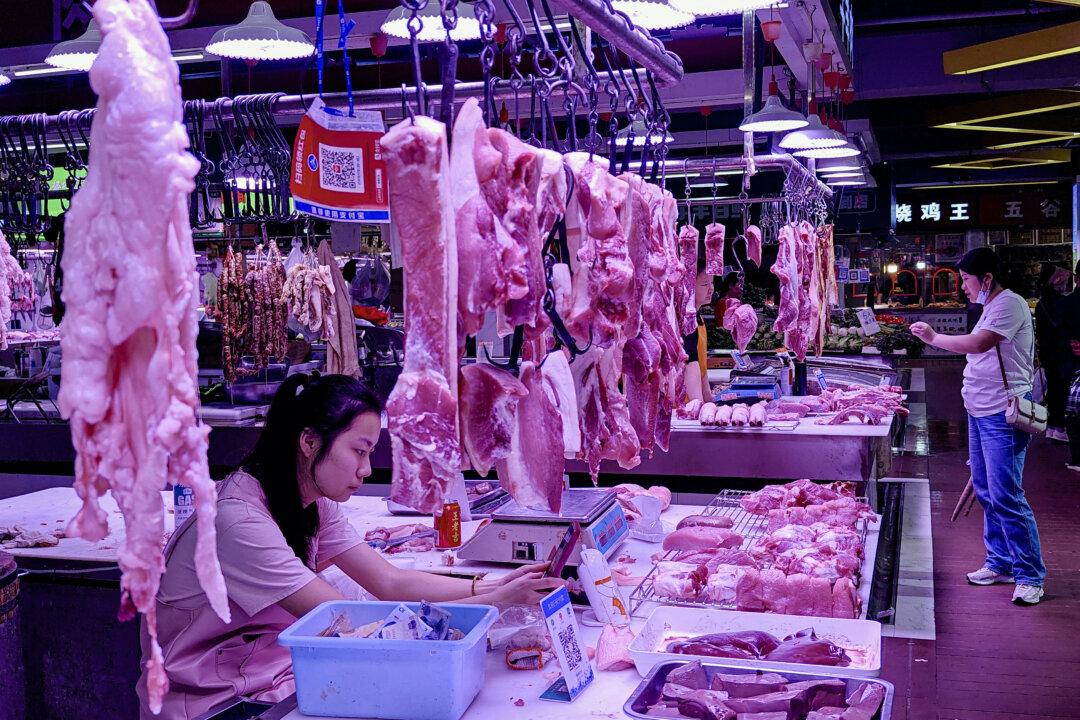The European Commission said it is not worried about Beijing’s decision to investigate pork imported from the European Union (EU) amid escalating tensions between Brussels and Beijing.
China’s communist regime on June 17 announced an investigation into “certain pork and pig byproducts” imported from the EU. The move was made less than a week after the bloc hiked tariffs on imported electric vehicles from China in response to what Brussels called a threat to its auto industry.




